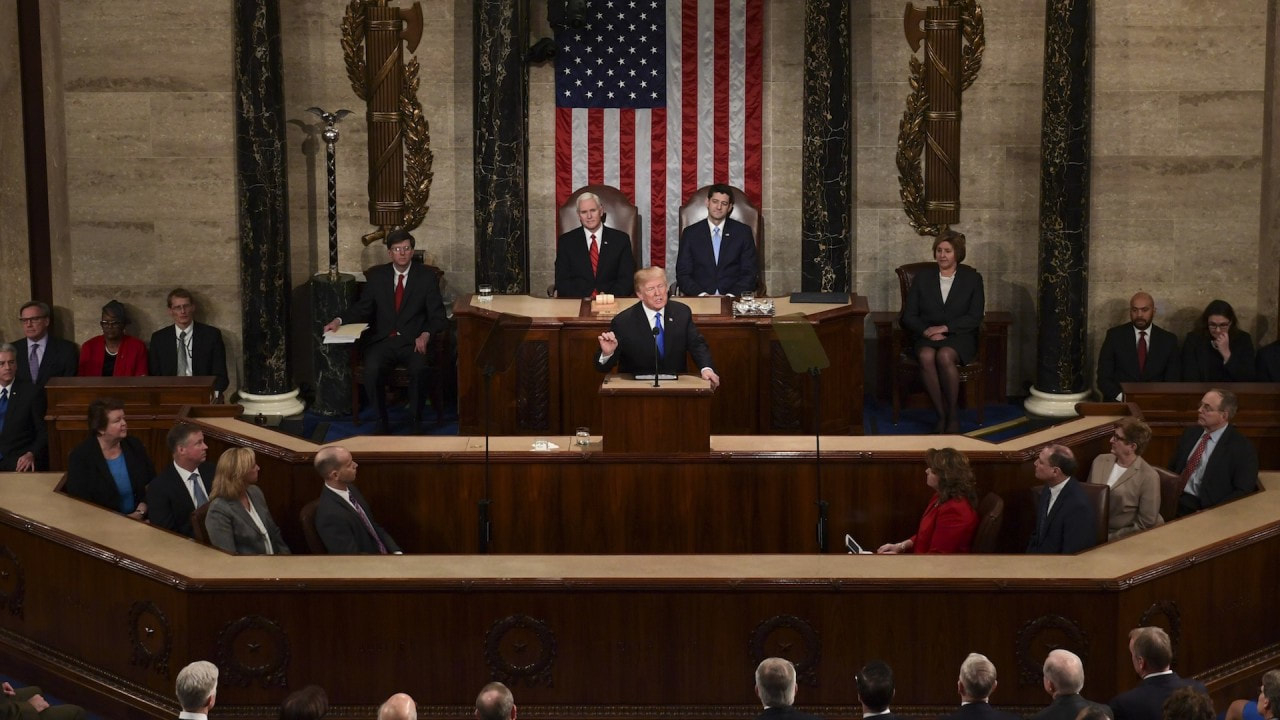|
A recent Knife analysis observed that our daily news is written with drama, and that subjective opinions are presented as fact. Unfortunately, these tendencies impair critical thinking. The coverage of the State of the Union address is as an excellent example of this type of reporting. Here’s what the four outlets we analyzed wrote, and how it can curtail the way we think. Fostering divisionsDivision was the unifying theme in the four articles, oddly enough. Here’s an example from CNN. The dramatic or sensational language is noted in red.
But as the Russia investigation grips Washington and contentious impassesover spending and immigration threaten to undercut Trump’s legislative agenda and his party’s electoral future in 2018, any unity Trump hoped to inject with his speech was quickly shattered. (CNN)Divisions and partisanship exist in the U.S. — we all contribute to them in some way. Do you think CNN recognizes that its own drama is a contributor to those divisions? Drama complicates problem solving. Data-based reporting stands a better chance of inspiring thoughtful, civil debate. Conflating the issuesLike CNN, The Washington Post juxtaposed Trump’s speech with other issues — that’s a slant technique that creates implication. Here’s one from the Post. The speech came at a crucial moment when the president faces a number of challenges: historically bad approval ratings for a chief executive at this point in his term, an investigation of Russian meddling in the 2016 election hanging overhis administration and midterm elections ahead in which Democrats are expected to make significant gains in Congress.What’s the implication? That President Donald Trump stands little chance of succeeding as chief executive. It’s not to say the issues cited aren’t true, but the Post’s implication is subjective and disparaging. It also keeps other media drama alive, and draws our attention away from the speech. Wasn’t that the subject of this news at least? Pure subjectivityLos Angeles Times stated its own opinion as if it were fact, often disparaging Trump and Republicans. Here’s an example. Trump’s strength has always been his ability to divide, not to unify. To his ardentbackers, he represents something other than the typical politician — a tough, says-what-he-thinks swashbuckler who, even if he can’t make things better for them, will make them worse for those they detest.News is supposed to convey the facts, right? The only objective fact here is that Trump is a politician. This type of reporting trains readers to mistake opinion for fact. That erodes our discernment skills, which are essential for critical thinking. Promoting blame and dishonorFox News devoted most of its coverage to criticizing Democrats’ responses to the speech, suggesting they’re to blame for political divisions. For example: [Trump’s call for unity] was met with one of more than 100 rounds of applause — but from just one side of the aisle. While Trump has undeniably contributed to the division in Washington, the images of petulant partisans seething at feel-good rhetoric was jarring for many observers.Blame creates bias and we become less grounded in reality with it. Here, the blame negates everyone’s participation in creating the current political climate — from the president himself to the average citizen. By vilifying one party, Fox News promotes bias and divisiveness. The other three outlets did the same, except they blamed Trump and Republicans for the situation. Additionally, the outlets’ use of dramatic, disparaging language conditions readers to expect entertainment rather than facts. Most regrettably, it normalizes dishonorable speech, which is a form of violence. This type of reporting trains society to condone behaviors such as cyberbullying and the ad hominem attacks so common on social media. Sensational coverage ultimately grooms us to favor entertainment over being informed. By inhibiting the stimulation of our thinking, it also numbs us to the morality of the decisions we make. After all, who wants to examine the ethics or consequences of the decisions they make, when the allure of media drama is more captivating? Considering the negative effects on our thinking, maybe we’ll think differently about that kind of reporting. Comments are closed.
|
Jens Erik GouldJens is a political, business and entertainment writer and editor who has reported from a dozen countries for media outlets including The New York Times, National Public Radio and Bloomberg News Archives
February 2018
Categories
All
|

 RSS Feed
RSS Feed